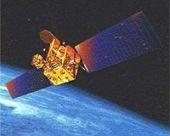 US space agency NASA has signed an agreement with the Indian Space and Research Organisation to use data from Indian satellite Oceansat-2, for various American agencies for research activities, including weather forecasting.
US space agency NASA has signed an agreement with the Indian Space and Research Organisation to use data from Indian satellite Oceansat-2, for various American agencies for research activities, including weather forecasting.
Launched on September 23, 2009 using the Polar Satellite Launch Vehicle from Sriharikota, Oceansat-2; is designed to provide service continuity for operational users of the Ocean Colour Monitor (OCM) instrument on Oceansat-1.
The agreement with the Indian Space Research Organisation will lead to the use of data from Oceansat-2 for various US agencies for research, education and other activities of public good, including weather forecasting.
The Letter of Intent in this regard was signed by Michael H Freilich, Director Earth Science Division, National Aeronautics and Space Administration; Mary E Kicza Assistant Administrator for Satellite and Information Science of the Oceanic and Atmospheric Administration; and R R Navalgund, Director, Space Application Centre, ISRO.
The signing ceremony was done in Washington on the sidelines of Sixth Plenary Session of the Group on Earth Observations (GEO).
The Letter of Intent signed between ISRO, NASA and NOAA under the overall Joint Civil Space Cooperation agreement promotes opportunity for receiving Oceansat-2 data by the US agencies for research, education and activities of public good.
The joint activities would include calibration, validation, algorithm development, scientific investigations and operational applications.
While ocean colour data is envisaged to be useful for fisheries, monitoring of harmful algae and in studying global carbon cycles, wind vectors from scatterometer would be useful in facilitating better weather forecasting.
Oceansat-2 carries three instruments like the eight band Ocean Color Monitor (OCM) to study Ocean biology, Ku band pencil beam Scatterometer to measure sea surface wind vectors and Radio Occultation Sounder for Atmosphere (ROSA).
While the first two instruments are ISRO built, ROSA has been contributed by the Italian Space Agency. All the three payloads have been switched on and are working satisfactorily, providing valuable data, said a statement from the Indian Embassy.







 © 2025
© 2025